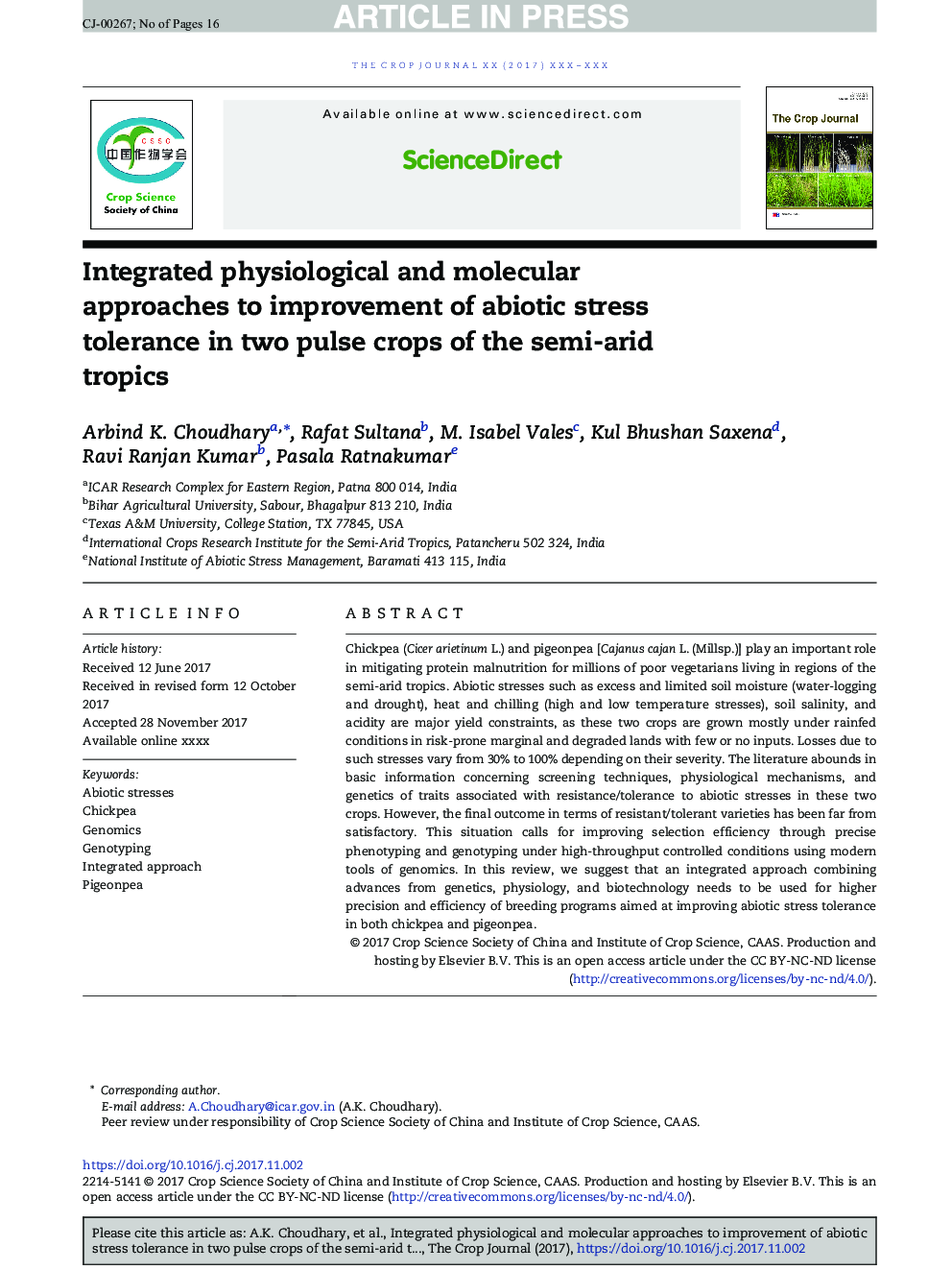| Article ID | Journal | Published Year | Pages | File Type |
|---|---|---|---|---|
| 8408747 | The Crop Journal | 2018 | 16 Pages |
Abstract
Chickpea (Cicer arietinum L.) and pigeonpea [Cajanus cajan L. (Millsp.)] play an important role in mitigating protein malnutrition for millions of poor vegetarians living in regions of the semi-arid tropics. Abiotic stresses such as excess and limited soil moisture (water-logging and drought), heat and chilling (high and low temperature stresses), soil salinity, and acidity are major yield constraints, as these two crops are grown mostly under rainfed conditions in risk-prone marginal and degraded lands with few or no inputs. Losses due to such stresses vary from 30% to 100% depending on their severity. The literature abounds in basic information concerning screening techniques, physiological mechanisms, and genetics of traits associated with resistance/tolerance to abiotic stresses in these two crops. However, the final outcome in terms of resistant/tolerant varieties has been far from satisfactory. This situation calls for improving selection efficiency through precise phenotyping and genotyping under high-throughput controlled conditions using modern tools of genomics. In this review, we suggest that an integrated approach combining advances from genetics, physiology, and biotechnology needs to be used for higher precision and efficiency of breeding programs aimed at improving abiotic stress tolerance in both chickpea and pigeonpea.
Related Topics
Life Sciences
Agricultural and Biological Sciences
Agronomy and Crop Science
Authors
Arbind K. Choudhary, Rafat Sultana, M. Isabel Vales, Kul Bhushan Saxena, Ravi Ranjan Kumar, Pasala Ratnakumar,
